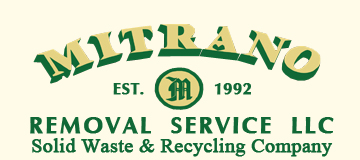 Compost is a simple, organic product that does a world of good in so many ways. The benefits are truly remarkable and they can help not just you, but your community as well. Let’s take a closer look at compost, what it is, and what it can do.
Compost is a simple, organic product that does a world of good in so many ways. The benefits are truly remarkable and they can help not just you, but your community as well. Let’s take a closer look at compost, what it is, and what it can do.
So what exactly is compost and the process of composting? Composting is nature’s process of recycling decomposed organic materials into a rich soil known as compost. Anything that was once living will decompose. Basically, backyard composting is an acceleration of the same process nature uses. By composting your organic waste you are returning nutrients back into the soil in order for the cycle of life to continue. Finished compost looks like soil–dark brown, crumbly and smells like a forest floor.
The fruit and vegetable scraps, eggshells, coffee grounds, grass clippings, fallen leaves, and animal manures we compost are turned into something useful (compost) instead of being trucked off to the dump where they’ll produce methane (the most damaging of the greenhouse gases), further harming the atmosphere as they decompose. When you compost, the only tools you need are a strong shovel and a little labor.
The most obvious benefit of composting is that compost is great for the garden. Whether added to seed-starting mixes, container plantings, garden beds, or lawns, compost does several important jobs:
- Microorganisms in compost help break down organic matter into plant-available nutrients, so plants grow stronger
- When added to the soil, compost increases the amount of moisture the soil retains, so you have to water less
- Compost can clean up and repair contaminated soil, including soils that have been destroyed by prior pesticide use
- Compost can help prevent erosion
But beyond a handy way to convert household, yard, and animal waste into a useful product, composting also helps clean up contaminants:
- Binds heavy metal contaminants so not taken up by plants
- Filters air and water of contaminants
- Degrades, and in some cases eliminates, toxic chlorinated and non-chlorinated hydrocarbons, explosives, wood preservatives, pesticides, and petroleum product contamination in soils
- Valuable in cleaning up abandoned mine sites
- Erosion prevention on roadways, mine slopes, clear cut hillsides etc.
Composting – it’s relatively easy to do, doesn’t require specialized equipment, and does a world of good.
